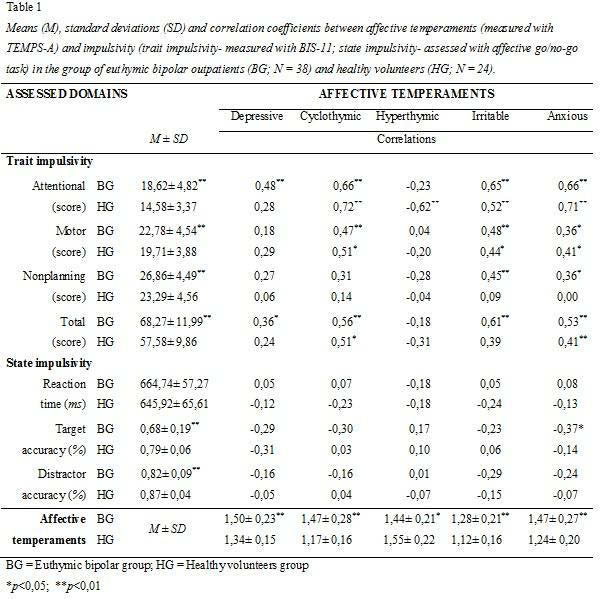No CrossRef data available.
Published online by Cambridge University Press: 16 April 2020
Several cognitive and behavioural disturbances persist in interepisodic bipolar disorder (BD). Affective temperaments may influence impairments as they contribute to the predisposition to BD and may share a common neurobiological basis with elevated trait impulsivity.
We aimed to assess a relationship between temperamental traits and impulsivity as a trait and state dependent behaviour among euthymic bipolar outpatients and healthy volunteers.
38 euthymic bipolar outpatients and 24 healthy volunteers completed TEMPS-A and BIS-11. Computerised picture- based affective go/no-go task was applied to examine emotional response inhibition as an indicator of state dependent impulsivity.
Clinical group scored significantly higher than healthy volunteers on trait impulsivity and affective temperaments scales, and displayed poorer control of emotional response inhibition (Table 1). Correlation patterns were similar in both groups, with strong associations between the majority of affective temperaments and trait impulsivity components, while correlations between state dependent impulsivity measures appeared weak.

During euthymia, distinctive temperament profile, elevated trait impulsivity and impaired emotional inhibition, prevailed among bipolar outpatients. This is consistent with data suggesting persistent abnormalities within specific areas of the prefrontal cortex and limbic structures which may underlie the emotional, cognitive and behavioural disturbances observed in all phases of BD.
Comments
No Comments have been published for this article.